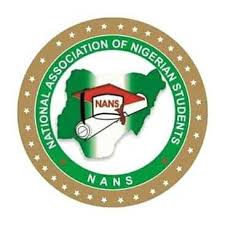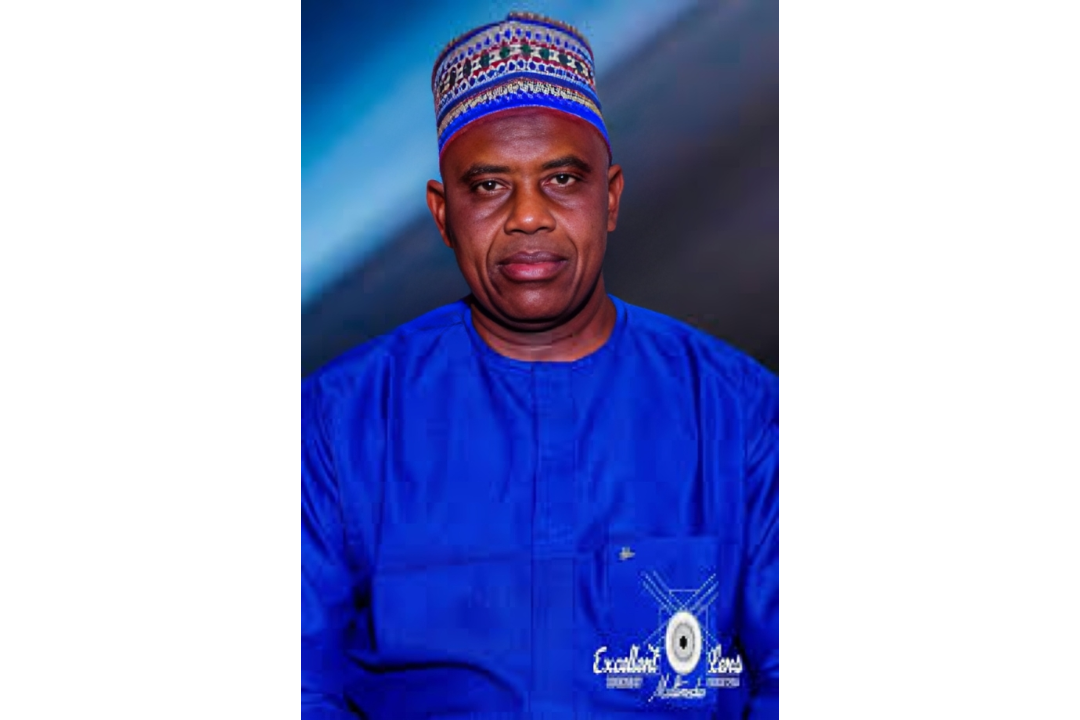Education
NANS Zone ‘A’ Elects new Executives, Harps on Students’ Welfare

The National Association of Nigerian Students (NANS) Zone ‘A’ has elected new executives to pilot its affairs for the 2024/2025 academic session across the zone.
This was made known in a communique jointly signed by Dominic Philip, Chairman, Communique Drafting Committee and Ahmed Magaji, his deputy, issued after its 38th Elective Congress on Tuesday in Kaduna.
According to the communique, the elected executives are poised to address the challenges facing Nigerian students and promote student welfare.
The congress said it would continue to prioritise students’ welfare and advocate affordable education.
”We would work tirelessly to address the challenges facing Nigerian students, particularly the arbitrary increase in school fees and inadequate funding for education, ” it said.
The communique said the zone comprises tertiary institutions from seven states in the North-West region, including Kaduna, Kano, Katsina, Kebbi, Jigawa, Sokoto, and Zamfara.
” The congress resolved to urge the Federal Government to establish more Compressed Natural Gas (CNG) conversion service stations across Nigeria.
”It also called for the provision of CNG buses to tertiary institutions to ease transportation challenges on campuses within the Zone and beyond.
“We commend the Federal Government for establishing the National Education Loan Fund, but we urge them to make it more accessible to students,” it said.
However, the association expressed concern over the exponential increase in school fees across tertiary institutions in the country and called for an urgent attention from the stakeholders.
“NANS will continue to advocate for affordable education and better living conditions for Nigerian students,” the communique added.
The congress commended the Kaduna State Government for its support and hospitality during the event.
“We appreciate the Kaduna State Government for providing a conducive environment for our congress,” while pledging continued support to the government led by Gov. Uba Sani.
”The association admonished the students to prioritise dialogue through constitutional means amidst economic hardships, discouraging involvement in destructive activities.
“We will work with the government to promote student welfare and advocate for better education policies,” the communique added.
On the election process, it said, 67 accredited delegates were present from the seven states in the zone for transparent electoral process.
The elected officials were: Said Garba Coordinator (Bayero University Kano) and Deputy Coordinator, Ibrahim Dikko (Kebbi University of Science and Technology).
The rest were: Bashir Ibrahim, Secretary General (Kaduna State University), Mohammed Abdullahi, Financial Secretary (Bayero University Kano) and Maryam Usman, Treasurer (HUK Poly).
Others were: Firdausi Hamza, Director of Gender, Gazali Gadanya, Director of Sports, Abubakar Wamako, PRO, Al-Amin Salisu Director of Travels and Exchange, Habibullahi Bello, Director Special Duties and Ex-Officio –Sadiq Maikano.
The congress also approved the establishment of three new Directorates to be headed by a Director each.
They are: Magaji Kabiru, Director of Peace, Integration and Reconciliation, Umar Shuaibu, Director of Gender Equality Matters, while Suleiman Yusuf is Director of Action and Mobilisation.(NAN)
Education
NELFUND Pledges Tech-Driven Student Loan Access

Mr Akintunde Sawyerr, Managing Director of the Nigerian Education Loan Fund (NELFUND), has reaffirmed the Fund’s commitment to developing a technology-driven system aimed at enhancing easy and equitable access to student loans.
Sawyerr gave the assurance on Tuesday in Abuja while addressing representatives from Polytechnics, Monotechnics, and Institutes during a Stakeholders Engagement Session and Technical Workshop on NELFUND System Automation and Loan Application Processes.
He explained that the Fund was working towards a seamless, transparent platform that allowed students to confidently access loans without unnecessary stress.
“At NELFUND, our mission goes beyond disbursing loans.
It’s about opening doors and ensuring every young Nigerian with a desire to learn and grow has a real opportunity, regardless of their background, location, or field of study.“For too long, students, especially in technical institutions, have faced significant financial barriers. Many have had to drop out, while others never even considered applying.
“That’s the gap we at NELFUND aim to close but we can’t do it alone. This is a shared mission involving government institutions and the private sector,” Sawyerr said.
Sawyerr emphasised that NELFUND was not only providing financial support but also building a technology-driven infrastructure that enabled easier application processes, institutional verification, and fast, fair disbursement.
“We’re striving for stress-free access a system students can trust.
“Transparency is key so that no applicant is left in the dark. We rely on you, our institutional partners, to help bring this vision to life,” he added.
He urged institutions to partner with NELFUND, saying the goal was to build a system that would not only be functional and sustainable but also truly transformative.
“As we integrate NELFUND processes with institutional systems and standards, we must remember that at the centre of all this is the student, a young Nigerian with dreams and ambition. Everything we do must serve that student.
“The only way forward is through collaboration, open communication, and practical solutions,” he said.
Also speaking at the event, Iyal Mustapha, Executive Director of Operations at NELFUND, said that more than 320,000 students had received funding so far, with further verifications ongoing.
Mustapha clarified that discrepancies between registered students and those whose applications were successfully processed often stemmed from incomplete applications on the students’ part.
“We have 576,000 registrations on our portal, but only 516,000 completed applications. Some may have dropped out due to data issues or just wanted to test the system.
“We want to bridge this gap, and with your support, we can ensure more students access the institutional loan,” he said.
Mustapha further explained that the institutional loan, which is different from the monthly upkeep loan of N20,000, was disbursed directly to institutions.
He added that NELFUND was considering integrating directly with institutional portals to simplify the process for students.
“We’re exploring the possibility of deploying our IT teams to institutions to enable direct connection with your portals.
“Ideally, students should be able to apply via your platforms without having to come through NELFUND, making the process smoother and more accessible,” he said
Education
Dangote Varsity Confers Honorary Degrees on Kwankwaso, Mangal, others

The Aliko Dangote University of Science and Technology Wudil has announced plans to confer honourary Doctorate Degrees on some notable Nigerians in recognition of their selfless services to the nation.
The recipients include: Alhaji Dahiru Mangal, Chief Author Eze, Dr Adeniyi Raji (SAN), Alhaji Ado Mohammad and Sen.
Musa Kwankwaso.The university’s Vice-Chancellor, Prof.
Musa Yakasai, made this known on Tuesday at a pre-convocation press briefing.He said that the individuals were carefully selected based on their characters and humanitarian services.
The vice-chancellor said that the convocation ceremony was scheduled to commence on Wednesday.
Yakassai also added that, 18,000 students who have graduated from the university over the past seven years would be celebrated.
He further confirmed that comprehensive security measures have been implemented to guarantee the safety of lives and property throughout the event.
Yakassai said that Alhaji Aliko Dangote would be reappointed as the university’s Chancellor for the second time.
The vice-chancellor also announced that Gov. Yusuf of Kano State would be the visitor of the university during the ceremony.
He expressed appreciation to the state government for providing all the necessary logistics in preparations for a smooch convocation
Education
Massive JAMB Failure Sparks Concern Over Education Standards

The 1.5 million candidates who scored below 200 out of the 1.9 million who sat for the 2025 UTME conducted by the Joint Admissions and Matriculation Board (JAMB) have ignited national concern.
The concerns are in relation to the quality of education and students preparedness in the examination.
Reacting to the development, Ike Onyechere, Founder, Exam Ethics Marshall International (EEMI), in an interview on Tuesday, said that the outcome was not surprising.
According to Onyechere, the examination is now being administered with ethics and professionalism hence the massive failure.
He added that the massive failure had exposed the deep-rooted problems in the nation’s education system.
”JAMB has made commendable efforts to ensure the integrity of the examination process by reducing opportunities for malpractice.
”I don’t think the JAMB statistical analysis should surprise anybody,” he said.
He emphasised that universities were increasingly alarmed by the academic quality of incoming students, noting that many of them lack basic foundational knowledge necessary for tertiary education.
Onyechere attributed the trend to systemic issues, including inadequate preparation, the inclusion of underqualified candidates, and a widespread cultural dependence on exam fraud.
”There’s moral infrastructure decadence in the system. It’s not just about the students. It involves stakeholders; schools, parents, and the government.
“Many students rely on fraudulent means to pass, and now that JAMB has blocked those avenues, their lack of preparedness is glaring,” he added.
He also noted that many candidates were not academically ready, as some were still in SS2 or underage, having not completed the syllabus.
He proposed a reform in the registration process, suggesting that only candidates with five credits in WAEC or NECO be allowed to sit in future for the UTME.
According to him, this will significantly reduce the number of applicants from nearly 2 million to about 1 million and ensure a more qualified candidate pool.
He also dismissed claims that the Computer-Based Test (CBT) format could be a barrier to performance.
”The CBT is easier in many ways. It’s mostly objective, and technology is now part of everyday life, even market women are technologically inclined. We can’t blame CBT for the poor results,” added.
Onyechere urged students to focus on talent discovery and career alignment rather than chasing certificates.
“Exams are not rocket science. It’s about working hard and understanding your strengths. Education should be a journey of self-discovery, not just certification,” he said.
He applauded government efforts to prioritise trade and vocational subjects in the curriculum, underscoring the importance of practical skills in today’s world.
He called on education stakeholders to reflect on the deeper issues in the examination failure and implement reforms to save the future of Nigeria’s academic system











